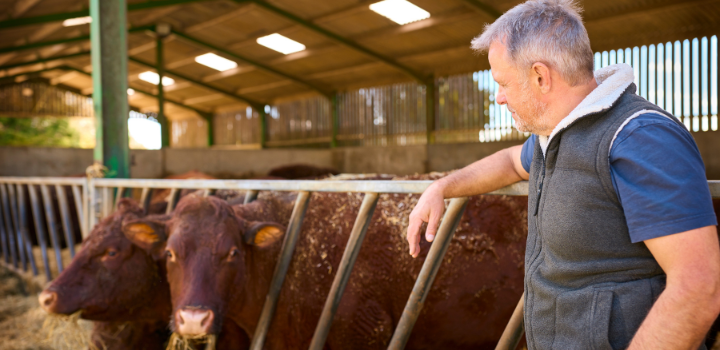As the current heatwave reminds us, climate change is already affecting how we live. But reducing methane, a potent greenhouse gas, could be the key to more rapid action to bring down global temperatures.
Although methane is more short-lived than CO2 in the atmosphere, we ignore it at our peril. It is over 80 times more powerful than CO2 over a 20 year period. Methane emissions should be cut urgently if the world is to stay below the target of 1.5°C of warming which we are now close to reaching. Because we need to act urgently, reducing methane emissions is a way to achieve a short term cooling effect, cutting the risk of passing dangerous climate tipping points while we develop other longer term solutions.
The cost of cutting emissions is low
Agriculture is the source of over half of the UK’s methane emissions and this mostly comes from dairy cows. One easy and cheap solution is to use safe additives in animal feed that suppress methane emissions. In December 2023, the Food Standards Agency followed the EU and Australia in approving the use of the methane suppressant Bovaer in Britain.
If this product was fed to just a third of English dairy cows, it could cut UK-wide methane emissions by around one per cent, ie almost 16,000 tonnes per year, equivalent to half a million tonnes of CO2. The cost of implementing it is relatively low, only about half a penny per pint of milk produced.
Many farmers would use methane suppressants but, in the face of so many other pressures on their businesses, some of them caused by climate change, cost is holding them back. There isn’t much motivation to use them as they don’t increase yields. Supermarkets, such as Morrisons, Marks & Spencer and Tesco, have started funding trials, recognising the importance of reducing emissions in their supply chains. However, relying solely on a few motivated suppliers and selective trials will not achieve the necessary wholesale impact across the nation’s dairy herd soon enough.
Other countries offer subsidies
So, why isn’t the government doing more to make sure agriculture’s methane emissions come down? The Department for Environment Food and Rural Affairs (Defra) has talked about mandating the use of methane suppressants by 2030 and is developing a Dairy Demonstrator programme. But this isn’t backed up by support for farmers to use these products, whereas farmers in Belgium and Slovenia are receiving subsidies of up to 80 per cent of the costs through new agricultural payments.
Farmers’ responses to the government’s call for evidence on methane suppressants indicate they would use them if costs were neutral. As we have shown, a subsidy would cost around £25 million per year to support 30{2add217ad2235d262e63a186eb2903fa1b3aade4b9d8db7a510444e5d82aac71} of English dairy farms.
This is a cheaper way to reduce greenhouse gas emissions than many of the other interventions subsidised under the Sustainable Farming Incentive scheme. It’s not clear why methane suppressants aren’t already part of this scheme as they are an obvious candidate for subsidy: they’re effective, act quickly and at relatively low cost. The government should change its terms and include them, helping farmers to reduce their emissions and ensure UK agriculture plays its part in a sustainable future.
Discover more from Inside track
Subscribe to get the latest posts sent to your email.
